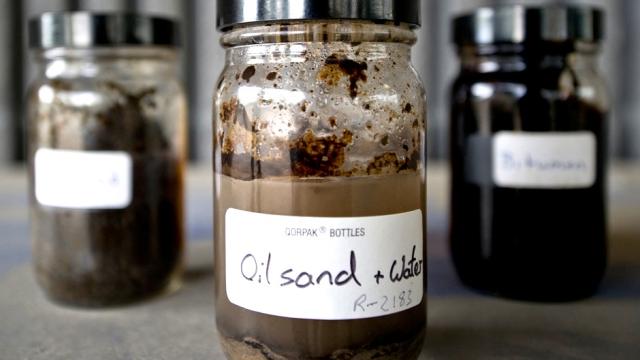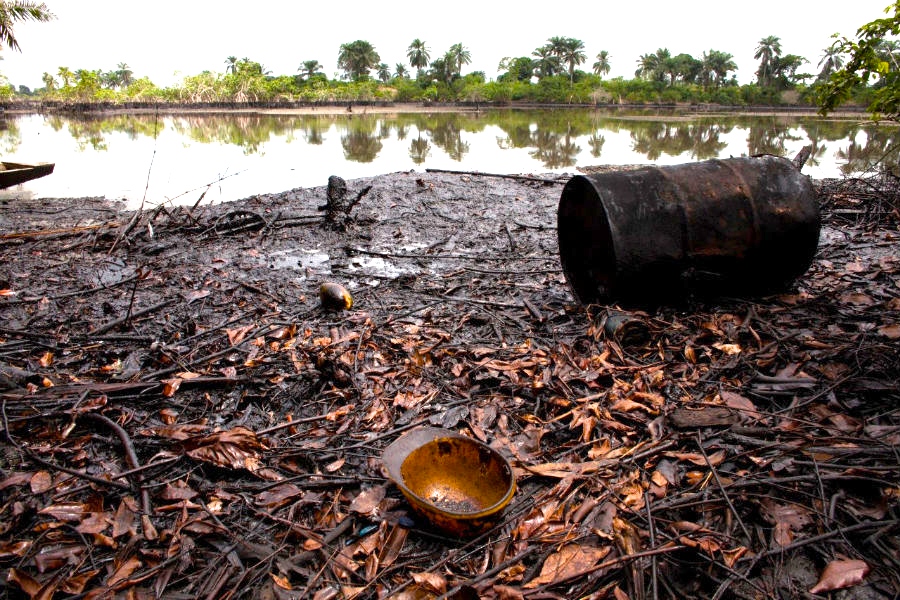
“People invest money through pensions into industries that cause climate change, often unknowingly and against their own financial interest,” says Louise Rouse, director of engagement for ShareAction, a U.K. non profit that campaigns for responsible investment on amultitude of issues – with climate concerts at the forefront.
“The pension investments in high carbon often contradict workers’ ethics,” Rouse addes. “A pension’s purpose is to give you a certain standard of living in retirement. However to build this pot, the companies may invest in ecological destruction. We want people to question this and think about the type of world they want when they retire.”
British pension funds invest over £3 trillion ($4.9 trillion) annually, significant amounts of which go toward funding high carbon industries through major oil and other corporations on the London Stock Exchange. Of these trillions in investment, 17% goes to just four oil companies, including BP and Shell.
These oil giants are the same leading players helping to develop the tar sands in Alberta, Canada – what scientists call a deadly “carbon bomb” if it gets burned – with additional large financing from banks like Royal Bank of Scotland, HSBC and Barclays.
Likewise, these banks top the list of where British pensions are placing their money. Additionally, mining is a high-carbon intensive industry – and the majority of the world’s mining operations form another large chunk of the FTSE, which the pensions also support.
Rouse explains that some of the pension funds still do not consider climate change’s future impacts whatsoever, “passively” investing in the whole FTSE.
Meanwhile, London is predicted to give further backing to new oil exploration efforts in the Arctic – repeating the trend of financing the world’s most destructive projects, the same as it has done with Canadian tar sands.
Major insurer Lloyds of London expects to see $100 billion in Arctic industrialization investment in the next decade, warning that this risks the fragile environment and will accelerate climate change.
“If humanity is to tackle climate change, the economy needs to be completely reorganized, which will take the pension funds huge pots of money,” Rouse adds. “Therefore, pension funds have huge potential and can use workers’ money to fund a future that we want.”
Ecologically, pensions’ heavy investment in high-carbon yielding industries has an even more illogical nature, as workers attempt to ensure their financial security on the basis of jeopardizing their ecological insecurity.
Rouse describes ShareAction’s climate campaign, called Green Light, as an innovative model that applies a convergence of economic and ecological concerns – encouraging pension funds to consider their “fiduciary duty,” or duty to seek profits, within a longer timeframe.
By undercutting the pension investors’ rationale to continue investing in destructive fossil fuels, the program helps deconstructs the idea that addressing climate change is bad for business.
The campaign draws a clear connection between humanity’s interest in avoiding the worst impacts of climate change, and pension funds’ interest in investing in safe, long-term projects – which means divesting, as soon as possible, from fossil fuel. A high proportion of oil companies’ future profits are based on oil that cannot be extracted if Earth is to avoid a two degree Celsius rise in temperature.
A report co-produced by the London School of Economics says: “Policy measures to tackle climate change could increase the cost of carbon emissions by $8 trillion by 2030.” Substantiating this, the project Carbon Tracker has suggested that 80% of the world’s known oil is “unburnable” if humanity is to maintain a viable climate.
Complementing this data, ShareAction’s Green Light campaign asserts that the climate crisis will directly cause disaster for pensions and the broader economy. Quoting the Stern Review, which looked at the result of “business as usual,” the group projects that the impacts of climate change will reduce global GDP in the near term by 20% if not more.
But not everyone is so readily convinced – above all, the oil corporations that stand to gain big by extracting and selling poisonous oil in the years ahead. An example of British pension holders backing London financiers to industrialize the Arctic was recently revealed.
The report, which appeared originally in the Guardian, showed that one of the U.K.’s largest pension providers, Standard Life, which owns a quarter of a trillion pounds in investment, is financing carbon intensive iron ore mining in the Arctic through shares in the U.K. company London Mining, which is initiating mining is Isua, Greenland. Standard Life is also a major shareholder of BP and Shell who have ambitions to prospect for oil in the Arctic.
When I called the Standard Life press office and asked, “Why are London Mining, BP, Shell and high-carbon industries viewed as good investments?” I was passed through three of the company’s public relations officers – the last of whom took three days to decide to issue the company’s answer: “No comment.”
The Guardian piece also highlights Greenland’s decision to allow the Australian owned Greenland Minerals & Energy Ltd to mine uranium in Kvanefjeld. Research into the company’s finances shows that Greenland Minerals is seeking finances from pension funds, in this case from Denmark
Responding to the news that BP and Shell have obtained further licenses to drill in Greenland, Rouse says: “Shell is a focus [of the Green Light campaign] because they are leading the charge to the far north.” She points to two reports that assess the dangers of Arctic drilling, both of which were written to inform pension investors.
Out in the Cold catalogues the myriad ways Shell has shown it is not skilled enough to drill in the Arctic, through a series of major accidents including running a drilling rig aground. “This whole enterprise comes at high risks to pension-holders, not least as the area is so isolated and expensive if there is a spill,” reads the report.
The other report, Russian Roulette, explains that any Russian drilling in the Arctic will be split between the country’s national oil giants, Gazprom and Rosneft, with other oil majors buying-in to their ventures. Both of these oil companies have very poor health and safety record – including when Gazprom did not include the deaths of 53 workers in an annual report after one of its rigs capsized.
In the interests of workers with pensions, and due to ethical concerns, ShareAction advocates that money get redirected through investment into the green economy, although it does not make specific recommendations. Rather, the group provides information to assist the shift and campaigns toward that change.
Rouse also says ShareAction has many similarities to the Occupy movement.
“Responsible investment is a natural extension of occupying the physical spaces, such as Wall Street and the City of London,” she continues. “Through pensions, the workers of the world can occupy the financial markets. If we scrutinize where all this pension money goes it can be very powerful.”
3 WAYS TO SHOW YOUR SUPPORT
- Log in to post comments

















